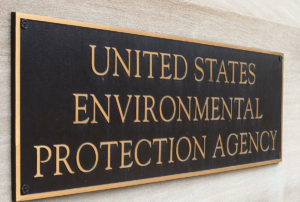 Lawmakers and industry leaders are calling on the Environmental Protection Agency to fully reallocate renewable fuel volumes impacted by granted Small Refinery Exemptions.
Lawmakers and industry leaders are calling on the Environmental Protection Agency to fully reallocate renewable fuel volumes impacted by granted Small Refinery Exemptions.
Fifty members of Congress, led by Rep. Randy Feenstra (R-IA), sent a letter to EPA Administrator Lee Zeldin Thursday to express strong support for the reallocation of 100% of the waived gallons from any granted SREs, and to urge the EPA to finalize the Renewable Fuel Standard (RFS) “Set 2” rule as quickly as possible.
“President Trump and his administration have done great work to lower prices at the pump for American families. A final, timely Set 2 rule that includes strong RVOs and necessary reallocation represents the most meaningful commitment to farmers and rural communities, homegrown American energy, and affordability for consumers,” said Rep. Feenstra.
The Renewable Fuels Association submitted comments today strongly urged EPA to reallocate 100 percent of exempted renewable fuel volumes, given the agency’s statutory obligation to ensure that finalized blending requirements are met. Additionally, RFA reiterated its position that EPA must prospectively reallocate exempted volumes anticipated for 2026 and 2027.
RFA expressed serious concern with the agency’s continued reliance on an outdated and flawed Department of Energy study to evaluate petitions for small refinery exemption, and emphasized that EPA should modernize its evaluation process for exemption petitions by using current market data, transparent metrics, and rigorous economic analysis when determining claims of “disproportionate economic hardship.” According to the association, doing so would help ensure a more level playing field across the refining sector and protect the integrity of the RFS program.
In addition to reallocation, comments from the American Coalition for Ethanol (ACE) reiterated support for EPA’s proposal to set record-high renewable fuel volumes and encouraged EPA to consider conventional biofuel levels exceeding 15 billion gallons to offset potential export market losses and ensure conventional ethanol maintains its role in the fuel supply.
In its comments to EPA Friday, Clean Fuels Alliance America also urged the agency to adopt supplemental “SRE reallocation volumes” and updated estimates of exempted volumes for 2026 and 2027 representing 100% of all granted, pending, and expected exemptions for the 2023 – 2025 compliance years. Clean Fuels also asked the agency to be judicious in granting exemptions.
Clean Fuels provided EPA a full analysis from World Agricultural Economic and Environmental Services (WAEES) of the economic consequences of small refinery exemptions for farmers and the agricultural economy. The study shows that if the agency fails to fully account for small refinery exemptions, biomass-based diesel production will fall by nearly a billion gallons and soybean farmers and processors could lose as much as $7.5 billion in crop value.

